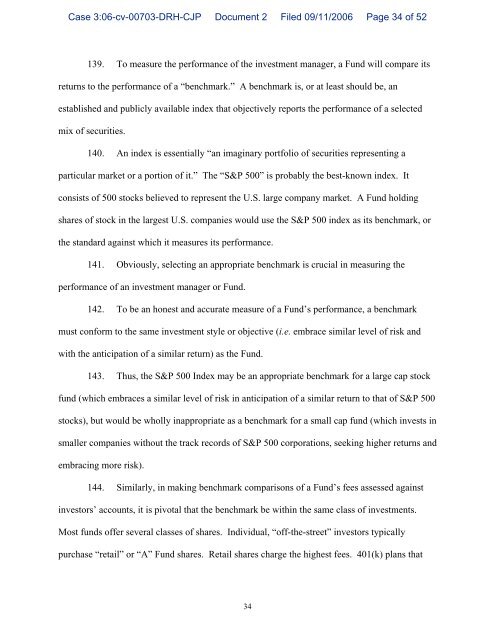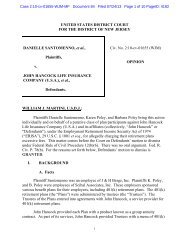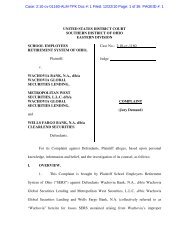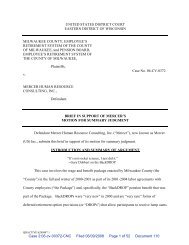International Paper - PLANSPONSOR.com
International Paper - PLANSPONSOR.com
International Paper - PLANSPONSOR.com
Create successful ePaper yourself
Turn your PDF publications into a flip-book with our unique Google optimized e-Paper software.
Case 3:06-cv-00703-DRH-CJP Document 2 Filed 09/11/2006 Page 34 of 52139. To measure the performance of the investment manager, a Fund will <strong>com</strong>pare itsreturns to the performance of a “benchmark.” A benchmark is, or at least should be, anestablished and publicly available index that objectively reports the performance of a selectedmix of securities.140. An index is essentially “an imaginary portfolio of securities representing aparticular market or a portion of it.” The “S&P 500” is probably the best-known index. Itconsists of 500 stocks believed to represent the U.S. large <strong>com</strong>pany market. A Fund holdingshares of stock in the largest U.S. <strong>com</strong>panies would use the S&P 500 index as its benchmark, orthe standard against which it measures its performance.141. Obviously, selecting an appropriate benchmark is crucial in measuring theperformance of an investment manager or Fund.142. To be an honest and accurate measure of a Fund’s performance, a benchmarkmust conform to the same investment style or objective (i.e. embrace similar level of risk andwith the anticipation of a similar return) as the Fund.143. Thus, the S&P 500 Index may be an appropriate benchmark for a large cap stockfund (which embraces a similar level of risk in anticipation of a similar return to that of S&P 500stocks), but would be wholly inappropriate as a benchmark for a small cap fund (which invests insmaller <strong>com</strong>panies without the track records of S&P 500 corporations, seeking higher returns andembracing more risk).144. Similarly, in making benchmark <strong>com</strong>parisons of a Fund’s fees assessed againstinvestors’ accounts, it is pivotal that the benchmark be within the same class of investments.Most funds offer several classes of shares. Individual, “off-the-street” investors typicallypurchase “retail” or “A” Fund shares. Retail shares charge the highest fees. 401(k) plans that34







